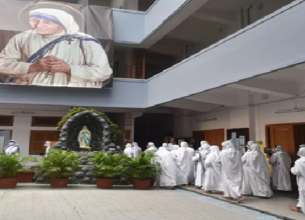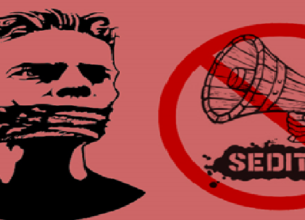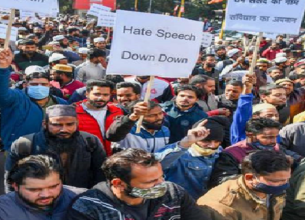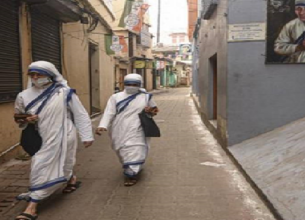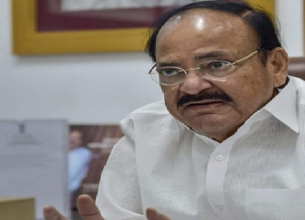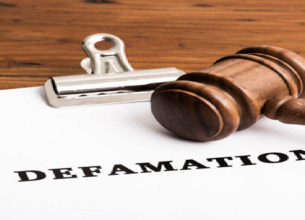Denial of FCRA to MoC Challenged
05, Jan 2022
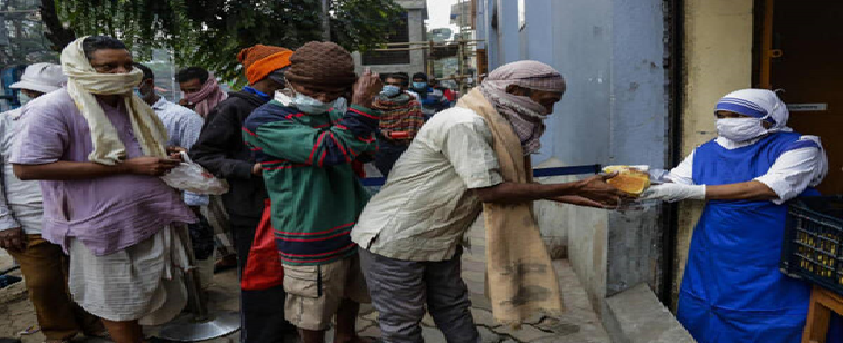
Prelims level : Policies
Mains level : GS-III Role of external state and non-state actors in Creating Challenges to Internal Security.
Why in News?
- A U.S.-incorporated organisation, Global Peace Initiative, and its founder, evangelist K.A. Paul, have approached the Supreme Court challenging the refusal of the government to renew the registration of Mother Teresa’s Missionaries of Charity under the Foreign Contribution Regulation Act (FCRA).
About the News:
- The NGO registered in Kolkata has more than 250 bank accounts across the country to utilise the foreign funds.
- Some of the biggest donors are Missionaries of Charity in the U.S.A and United Kingdom that contributed over ₹15 crore to MoC, India, for “primary health care, education assistance, treatment of leprosy patients” among others.
- MHA said in a statement that the renewal was refused for not meeting the eligibility conditions and no request / revision application has been received from Missionaries of Charity (MoC) for review of this refusal of renewal.
- The registration was not renewed purportedly on the basis of some “adverse inputs”, the writ petition said. “The cancellation of the license of a renowned charitable organisation like the Missionaries of Charity on vague grounds such as ‘adverse inputs’ will have a chilling effect on all other Non- Governmental Organisations,” it said.
- The plea has also urged the court to quash the government’s direction to not renew the registration of “close to 6,000 NGOs”.
About Foreign Contribution (Regulation) Act (FCRA), 2010:
- Foreign funding of voluntary organizations in India is regulated under FCRA act which is implemented by the Ministry of Home Affairs.
- The Acts ensures that the recipients of Foreign Contributions adhere to the stated purpose for which such contribution has been obtained.
- Under the Act, organisations are required to register themselves every five years.
About Non-Governmental Organisations (NGO):
- Worldwide, the term ‘NGO’ is used to describe a body that is neither part of a government nor a conventional for-profit business organisation.
- NGOs are groups of ordinary citizens that are involved in a wide range of activities that may have charitable, social, political, religious or other interests.
- NGOs are helpful in implementing government schemes at the grassroots.
- In India, NGOs can be registered under a plethora of Acts such as the Indian Societies Registration Act, 1860, Religious Endowments Act, 1863, Indian Trusts Act, etc.
- India has possibly the largest number of active NGOs in the world; a study commissioned by the government put the number of NGOs in 2009 at 33 lakh.
- That was one NGO for less than 400 Indians, and many times the number of primary schools and primary health centres.
- Ministries such as Health and Family Welfare, Human Resource Department, etc provides funding to a handful of NGOs.
- NGOs also receive funds from abroad, if they are registered with the Home Ministry under the Foreign Contribution (Regulation) Act (FCRA).
- Without this, no NGO can receive cash or anything of value higher than Rs 25,000.
Controversies Related to FCRA:
- The FCRA regulates the receipt of funding from sources outside of India to NGOs working in India. It prohibits the receipt of foreign contribution “for any activities detrimental to the national interest”.
- The Act also held that the government can refuse permission if it believes that the donation to the NGO will adversely affect “public interest” or the “economic interest of the state”. However, there is no clear guidance on what constitutes “public interest”.
- The FCRA restrictions have serious consequences on both the rights to free speech and freedom of association under Articles 19(1)(a) and 19(1)(c) of the Constitution. The right to free speech is affected in two ways:
- By allowing only some political groups to receive foreign donations and disallowing some others, can induce biases in favour of the Government.
- NGOs need to tread carefully when they criticise the regime, knowing that too much criticism could cost their Survival.
- FCRA norms can reduce critical voices by declaring them to be against the public interest. This chilling effect on free speech can lead to self-censorship.
- Similar to this on unclear guidelines on public interest, in Shreya Singhal v. Union of India (2015), the Supreme Court (SC) struck down Section 66A of the Information Technology Act. The SC held that the Act could be used in a manner that has a chilling effect on free speech.
- Besides, given that the right to freedom of association is part of the Universal Declaration of Human Rights (Article 20), a violation of this right also constitutes a human rights violation.
- In April 2016, the UN Special Rapporteurs on the Rights to Freedom of Peaceful Assembly and of Association undertook a legal analysis of the FCRA, 2010.
- It stated that restrictions in the name of “public interest” and “economic interest” as invoked under the FCRA failed the test of “legitimate restrictions”.
- The terms were too vague and gave the state excessive discretionary powers to apply the provision in an Arbitrary Manner.
- In this context, though it is necessary to regulate corrupt NGOs, there needs to be clarity on terms like Public Interest.



